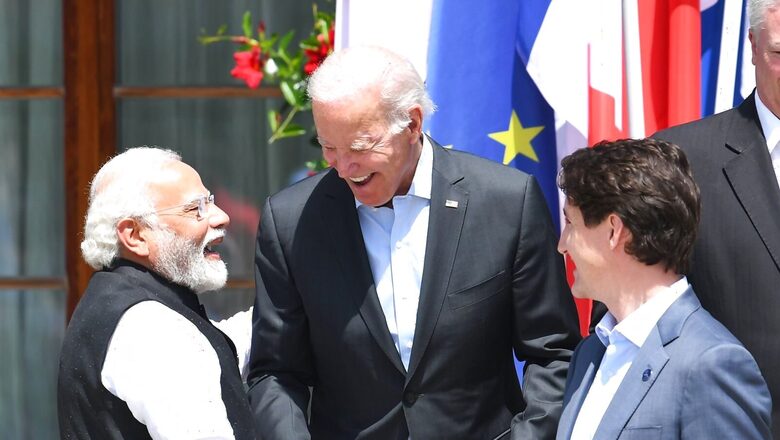
views
In the year 2023, India will have the opportunity to preside over one of the key international alliances, i.e. G-20. The G-20 remains an elite group of economically and technologically developed nations which control the global economy in the current scenario. India’s presidency next year offers an opportunity for the government to set critical agendas for the group.
One of the key areas that India can focus on as part of its presidency can be technology and bringing like-minded states together on the technological front. In the current Information Age, technology remains an integral aspect of states’ economies. Technology has managed to penetrate into the strategic and diplomatic realm contributing to key diplomatic initiatives at the global level. Several critical and emerging technologies are also becoming the centre of rising geopolitical tensions between technologically advanced states.
Considering the primacy of technology in both the economic and foreign policy realm, it is in India’s interest to push for an alliance between techno-democracies to regulate and govern the use of critical technologies in the future. Technologies such as AI and Quantum Computing have the potential to be misused by both state and non-state actors. A solid ethical enforcement mechanism governing the use of such technologies needs to be formulated jointly by major international tech powers. There also needs to be a framework to prevent authoritarian and rogue nation-states from mishandling technologies to infringe upon their citizens’ rights. This is where a techno-democratic alliance will be required, and India can lead the way in establishing one.
Threat of Digital Authoritarianism
A divide between democracies and authoritarian states related to technology has recently been visible. Some authoritarian states like China and Russia have showcased how not to deploy the technology on their citizens. Internet restrictions, surveillance threats and privacy violations using technology are legitimate concerns of using technology in an authoritarian regime. There are fears also on the potential misuse of technology by the state to infringe upon citizens and their rights.
In this case, a leading effort to bring democracies together is imperative in technology. A techno-democratic alliance can help regulate the use of emerging and critical technologies, restricting their use only for the benefit of society. With India in the G-20’s driver’s seat for 2023, an initiative to curb and restrict the use of technology for harmful purposes can be pushed forward as a mechanism to control authoritarian regimes.
Securing Technology Supply Chains
Another key aspect of a techno-democratic alliance would be the ability to survive supply chain shocks in critical technologies that are essential digital economy tools. The effect of the Covid-19 pandemic on the semiconductor industry and its supply chain showcased how multilateralism in securing these complex supply chains is essential in the current scenario.
A cooperative effort between the G-20 countries, where most of the states are technologically advanced, can build resilience into the existing value chain. Bottlenecks and dependencies can be mitigated through combined efforts while ensuring the functioning of the global ecosystem at a respectable efficiency level. Because there have been talks of making key supply chains independent of China’s presence, India has the opportunity to kick-start collaboration and contributions to ensure security in crucial tech areas.
Boosting the Digital Economy
There has been a gradual but tectonic shift of economic sectors moving towards the digital realm. The rise of the digital economy means that information and communication technologies (ICTs) are driving forward commercial transactions and large-scale economic activities. This needs a holistic approach to ensure emerging technologies can be appropriately used to facilitate and secure the economy.
The digital economy’s growth also means a massive rise in cross-border economic transactions with technology empowering the domain. It would put different states’ responsibilities to ensure that technology can positively contribute to the digital economy. The G-20 countries especially are all advanced economies whose decisions drive forward and set standards at the international level. A group of techno-democracies can help to leverage existing and potential technologies to build a solid foundation for developing economies to access and utilise the digital space to boost their economic progress.
India, as a rising tech power, can drive forward the conversation on technology at a foreign policy level. As part of its G-20 presidency, it is in India’s interest to carry forward initiatives related to technology at a global level. At the heart of this lies the ability to stitch together an alliance between democracies which can use technology for only good.
Arjun Gargeyas is a research analyst at Takshashila Institution. The views expressed in this article are those of the author and do not represent the stand of this publication.
Read all the Latest Opinion News and Breaking News here




















Comments
0 comment